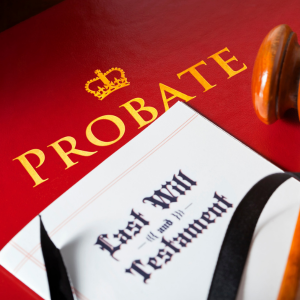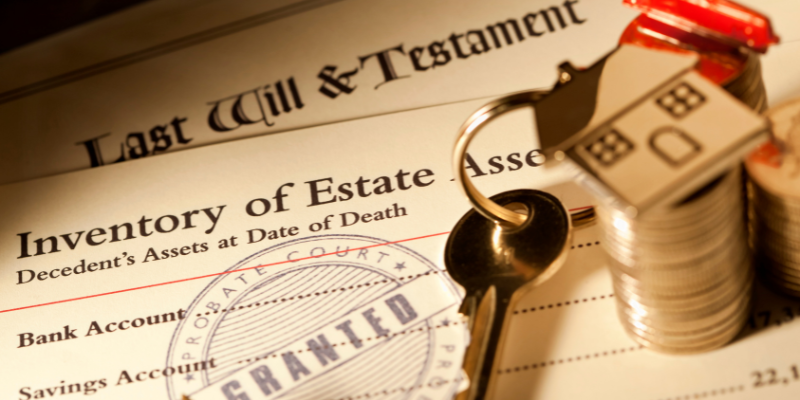Selling A Probate House in Twin Cities Made Simple and Stress-Free
First off, we’re sorry for your loss. But now you’re stuck figuring out what to do with this property in the Twin Cities, and selling it means dealing with probate court. Not exactly the type of stress you want to deal with after losing someone.
But, truth be told, probate isn’t nearly as scary as people make it out to be. Sure, there’s paperwork and some waiting around, but it’s really just following a checklist.
Let us walk you through how this works so you can sell that house in Saint Paul, MN, and Minneapolis, MN, and get on with your life.
What Is Probate and Why Does It Matter When Selling a Home?

Probate is just the legal process that moves a deceased person’s property to their heirs. This is how the court makes sure that everything happens above board. They ensure that debts get paid and the will gets followed. They also see to it that the right people end up with the right stuff.
You can’t just sell an inherited house whenever you feel like it because technically, you don’t own it yet. The court needs to officially transfer ownership to you first.
Most estates in Minnesota go through informal probate, which is the faster, cheaper version. You file some documents, the court approves everything, and you’re cleared to sell.
The whole thing typically takes six months to a year. But sometimes, it can be longer if family members start arguing or if there are complications with debts and creditors.
How to Sell a Probate House in the Twin Cities
The court runs the show during probate in Minneapolis, MN, and Saint Paul, MN, so you can’t really speed things up or skip around. You just have to follow these steps.
Step 1: File a Petition with Probate Court
Your first move is heading to the county probate court where the deceased person lived. For Minneapolis, MN, that’s Hennepin County. St. Paul, MN, residents go through Ramsey County.
You need to file a petition asking the court to open the estate and appoint you to handle everything. You’ll need the original will if there is one, a certified copy of the death certificate, and information about all the heirs who’ll inherit. The filing fee runs about $400, give or take, depending on the county.
Step 2: Notify All Interested Parties
Once you file, Minnesota law requires you to notify everyone who might have a stake in the estate. That includes all the heirs named in the will, people who’d inherit if there were no will, and any creditors who are owed money.
You have to publish a notice in a legal newspaper (yeah, those still exist) and send letters directly to certain people.
This notification period gives everyone about three to four weeks to speak up if they have concerns or want to claim the estate.
Step 3: Get Appointed as Personal Representative
After the respective courts in Minneapolis, MN, and Saint Paul, MN, look over your petition, and nobody raises any red flags, they officially make you the personal representative. That’s just legal speak for the person who’s authorized to handle the estate’s business, including selling the house.
The court gives you paperwork called Letters Testamentary or Letters of General Administration. You’ll need to show these to pretty much everyone you deal with, including banks, title companies, real estate agents, and buyers. It’s your proof that you’re actually allowed to do what you’re doing.
Step 4: Get the Property Appraised
Before you can sell, you need a professional appraisal to find out what the house is worth. The court wants this number for tax reasons, but it also keeps you from accidentally underselling the property.
If you accept an offer that’s way lower than the appraisal, other heirs might freak out, and the court will definitely question your decision. Plus, having an appraisal gives you a realistic sense of what to expect when buyers start making offers.
Step 5: Prepare the Home for Sale
Some inherited homes in Minneapolis, MN, and Saint Paul, MN, are in great shape and just need a quick cleanup. Others have been sitting empty for months and need way more attention. You might need to clear out personal belongings and handle basic repairs. You might also need to deal with bigger maintenance issues.
How much effort you put in really depends on your timeline and budget. Some people invest in updates to get a higher price. Others just want to sell quickly and move on.
Step 6: List the Property or Find a Buyer
You have two main options for selling. You can list the house with a real estate agent who’ll handle marketing, showings, and all that traditional stuff. Or you can sell directly to a buyer (often a cash buyer) and avoid the whole drawn-out process.
Agents are great if you want to maximize your sale price and don’t mind waiting for the right buyer. On the other hand, direct sales work better when you need to close fast, or the house needs repairs you don’t want to deal with.
Either way, you’ll need to let buyers know this is a probate sale, so they understand there’s an extra approval step coming.
Step 7: Review Offers and Request Court Approval
Let’s say you’ve got an offer you like. You still can’t just accept it and move forward because the court needs to sign off on the sale. You go back to probate court and file another petition with all the offer details. You need to wait for them to schedule a hearing.
Sometimes the judge takes one look and approves it on the spot. Other times, the court orders what’s called an overbid process, where other buyers can submit competing offers. This way, the court makes sure the estate is getting fair value, and the heirs aren’t getting shortchanged.
Step 8: Complete the Sale and Distribute Proceeds
Once the court gives you the green light, the closing process works just like any regular real estate sale. The buyer gets the deed, and the money goes into the estate’s account. Then, you use those funds to pay off any lingering debts or expenses.
After all the bills are settled, whatever’s left gets divided among the heirs based on what the will says or according to Minnesota’s inheritance laws if there wasn’t a will.
You file a final accounting with the court showing where all the money went, and then the estate officially closes.
Possible Issues When Selling a Probate House in the Twin Cities
Selling a probate house would be easy if everything went smoothly, but let’s be real, it rarely does. Here are the headaches you might run into and how to handle them.
Dealing with Multiple Heirs and Family Disputes
Nothing complicates a probate sale faster than siblings who can’t agree on anything. One person wants to sell immediately, another thinks you should wait for the market to improve. Then, someone else wants to keep the house in the family.
You’re the personal representative, so technically, you have the authority to make the call, but good luck with Thanksgiving dinner if you ignore what everyone wants.
That said, always keep communication open from the start. Send regular updates and try to get everyone on the same page before making big decisions. If things get really ugly, a family mediator can help before it turns into a legal problem.
Property Condition Issues and Needed Repairs
Inherited houses often come with surprise problems. You have to decide how much money and effort to put into fixing things up, and that decision affects both your timeline and your sale price.
Renovating everything might get you more money, but it takes months and costs a bunch upfront. Selling as-is moves way faster but means accepting lower offers. Most people split the difference. Fix the obvious problems that’ll scare buyers away, and avoid the fancy upgrades.
Minnesota Probate Laws and Requirements

Minnesota has specific rules about probate sales, and the court can reject your sale, or worse, if you don’t follow them. You need court approval before accepting offers. Sometimes, the court requires a public bidding process even after you’ve found a buyer, and you have to handle creditor claims in a specific order.
If you miss a step, this can delay everything by months. A probate attorney costs money, but keeps you from making expensive mistakes that’ll cost you way more in the long run.
Outstanding Debts and Liens on the Property
Debts don’t vanish when someone dies in Minneapolis, MN, and Saint Paul, MN. All credit cards, medical bills, property taxes, and mortgages still exist and need to be paid from the estate. Any liens on the property have to be cleared before you can transfer the title to a buyer.
If the house is worth more than the debts, you’re fine. But if you find out the mortgage is bigger than what the house will sell for, you’ll deal with a short sale where the bank has to agree to take less than what’s owed. That’s a whole other headache that can drag on for months.
Tenant-Occupied Properties
You can’t just kick tenants out because Minneapolis, MN, and Saint Paul, MN, tenant laws still apply during probate. If they’re month-to-month, you give proper notice and wait for them to leave. If they’re in the middle of a year-long lease, you either wait it out or sell the property with them still living there. This will really limit your buyer options.
Most regular buyers want an empty house they can move into. You’re probably looking at selling to an investor if you can’t get the tenants out first.
Properties in Disrepair or Hoarding Situations
You can also inherit a house that’s just a disaster. The previous owner probably struggled with hoarding, and there’s stuff piled everywhere, or they couldn’t afford maintenance, and now there are serious structural problems. It’s also possible that the property has been vacant and has been broken into and trashed.
These situations are emotionally rough and expensive to deal with. Professional cleanouts cost thousands, and the whole process is exhausting.
Most people in this situation just sell as-is to a cash buyer who handles distressed properties. Trying to fix everything would take forever and eat up all your profits anyway.
Timeline: How Long Does It Take to Sell a Probate Property?
Everyone wants to know how long this whole thing is going to take, and it depends on various factors. But here’s a realistic description of each phase so you’re not flying blind.
Filing and Initial Appointment (2 to 4 Weeks)
It usually takes two to four weeks from when you file your petition to when the court officially appoints you as personal representative. Some counties move faster than others, depending on how backed up they are.
If your paperwork’s clean and nobody raises objections, you’re looking at the shorter end. If there are issues with the will or arguments about who should be in charge, it stretches longer.
Notification Period (3 to 4 Weeks)
Once you’re appointed, you kick off the notification period where you publish that legal notice and send letters to everyone involved. Then you wait because Minnesota law gives creditors time to come forward with claims against the estate.
This runs about three to four weeks from when the notice goes out. You can’t do anything with the house until this window closes because creditors have a right to be heard before you start selling off assets.
Property Preparation and Listing (2 to 8 Weeks)

Another factor is the current shape of your house. If it’s already clean and move-in ready, you might list it within a week or two. If you’re dealing with major cleanouts, repairs, or updates, you could easily be looking at two months.
Typically, people spend one weekend clearing out personal stuff and list it immediately. Others spend months fixing things up before they feel good about putting it on the market.
Finding a Buyer (4 to 12 Weeks)
The time it takes to find a buyer varies based on your market, pricing, and property condition. In a hot market with a nice house, you might get offers in days. In a slower market or with a fixer-upper, you’re waiting months.
Traditional listings usually take longer because you’re waiting for the right buyer to show up, schedule showings, and make an offer. Cash buyers move way faster (sometimes within a week or two) because they don’t need financing, and they’ll take the house however it is.
Court Approval Process (2 to 6 Weeks)
After you accept an offer, you go back to court for approval and wait for a hearing. If the offer’s at or above the appraised value and nobody’s complaining, the court usually signs off within two to three weeks. If they order an overbid process or heirs start objecting, it can drag on for six weeks or more.
Court schedules matter, too. There are counties that have probate hearings weekly, and others only a couple of times a month. If you miss one, you’re waiting around for the next available date.
Closing (2 to 4 Weeks)
Once the court approves your sale in Minneapolis, MN, and Saint Paul, MN, closing works like any normal real estate deal. The title company does its thing. The buyer arranges financing if they need it, and you pick a closing date. This usually takes two to four weeks.
Cash buyers close faster since there’s no bank involved. Traditional buyers with mortgages take a bit longer because their lender needs time to finalize everything. After closing, you pay off the estate’s debts and distribute what’s left to the heirs. You also need to file your final paperwork with the court to officially close out the estate.
Costs Involved in the Probate Process
Probate isn’t free, and the costs stack up fast. Here’s what you’re actually going to spend when selling a probate house in the Twin Cities.
| Cost | Estimated Amount | Notes |
| Court Filing Fees | $300 to $500 | Varies by county and estate complexity |
| Probate Attorney | $3,000 to $7,000+ | Depends on estate size and complications |
| Property Appraisal | $400 to $600 | Required before selling |
| Real Estate Agent Commission | 5% to 6% of sale price | Only if you list traditionally |
| Property Maintenance | Varies | 2% to 3% of the sale price |
| Cleaning and Repairs | $500 to $10,000+ | Insurance, utilities, and taxes while in probate |
| Title and Closing Costs | 5% to 6% of the sale price | Standard closing expenses |
| Personal Representative Fee | Up to 2% of the estate value | Optional compensation in Minnesota |
The court filing fees hit you right away, and most people end up hiring an attorney because there are just too many ways to mess this up on your own. The appraisal isn’t optional, either. The court wants it before you can sell.
If you go with a real estate agent, that means you would pay five to six percent in commission. On a $300,000 house, that is around $15,000 to $18,000. While the property sits in probate, you’re also covering insurance, utilities, property taxes, and whatever maintenance pops up.
Cleaning and repairs vary depending on condition. It could be a few hundred for a cleanout or ten grand if things are really rough.

Sell Your House in Probate to Cash Buyers
If you’re tired of waiting around and just want this whole probate thing done, cash buyers like us at K&G Investments might be your answer. We buy houses in Twin Cities outright without financing, inspections, or any of the usual headaches that come with traditional sales. Here’s what makes cash buyers appealing for probate sales:

Lower Carrying Costs
Sell faster and stop paying insurance, utilities, and taxes

Fast Closing
Close in two to three weeks once the court approves, not months

Simple Process
One buyer, one offer, one closing

No Financing Contingencies
No risk of the deal falling through at the last minute

Skip the Showings
No staging, open houses, or strangers walking through

No Repairs Needed
They buy the house exactly as it sits right now
Sell Probate House in Twin Cities
We are direct home buyers specializing in probate properties in the Twin Cities. No commissions, no fees, and no obligations. Start below by sharing the property location and where we can send your offer.
Frequently Asked Questions
Can I live in the probate house while it’s being sold?
Yeah, you can usually live there if you’re the personal representative and one of the heirs. Just know you’re responsible for all the bills, including utilities, insurance, property taxes, and maintenance.
If other heirs also want to stay there, that’s another headache. It’s worth talking to a probate attorney if multiple people are fighting over who gets to live in the house during probate.
What if the house has a reverse mortgage?
Reverse mortgages come due when the homeowner dies, so you’ll need to pay them off or sell the house to settle the debt. The lender usually gives you about six months to either pay off the loan or sell the property.
Suppose the house is worth more than the reverse mortgage balance. Great! The heirs get what’s left. If it’s worth less, the lender typically takes the loss, and the heirs don’t owe anything extra.
Do I need to pay the deceased person’s debts before selling?
Not before selling, but definitely before distributing any money to heirs. When you sell, the proceeds go into the estate account. You use that money to pay off creditors who filed valid claims during probate.
Only after all the debts and expenses are settled can you distribute what’s left to the heirs. The court watches this closely to make sure creditors get paid first.
Can the personal representative get paid for their work?
Yes. Minnesota law allows personal representatives to take up to two percent of the estate’s value as compensation for all the work involved. Most people skip this fee if they’re also inheriting from the estate, since they’re getting money anyway.
But if you’re putting in hours managing a complicated probate and you’re not an heir, you should definitely take that fee.
What happens if we can’t agree on a sale price?
The personal representative has the legal authority to make the final decision, but it’s smarter to try getting everyone on board first. If heirs seriously disagree and think you’re underselling the property, they can petition the court to block the sale.
That creates delays, legal fees, and family drama nobody needs. You should get a professional appraisal because it gives everyone an objective number to work from instead of just guessing.
Can I buy the probate house myself as an heir?
You can, but you’ll need court approval just like any other sale. The court wants to make sure the price is fair, and you’re not taking advantage of your position as personal representative.
You’d typically need to buy out the other heirs’ shares based on the appraised value. Having an independent appraisal and getting the other heirs to agree on the price makes the court more likely to approve it.
Do I need court approval to sell a probate house in Minnesota?
In many Minnesota probate cases, yes. Some estates allow independent administration, which can reduce court involvement, but others require court approval before selling real estate. A probate attorney can confirm which applies to your situation.
How long does it take to sell a probate property in Minneapolis?
Selling a probate property in Minneapolis typically takes 3 to 9 months, depending on court timelines, heir cooperation, and property condition. Working with a cash buyer like K&G Investments can significantly reduce delays.
Can I sell a probate house as-is?
Yes. Probate properties in Minnesota can be sold as-is, meaning you do not have to make repairs, updates, or clean out the home. This is often the fastest and least stressful option for heirs.
What if the probate house has liens or unpaid taxes?
Liens, unpaid property taxes, and other obligations are usually paid from the sale proceeds at closing. These issues do not prevent you from selling, but they must be resolved before heirs receive any funds.
Do I need a real estate agent to sell a probate house?
No. While some estates choose to list with an agent, many probate sellers work directly with a local cash buyer to avoid commissions, repairs, and showings. This is especially helpful when selling inherited property quickly.
Why do Minneapolis families sell probate houses to cash buyers?
Many heirs choose cash buyers because:
- No repairs or cleanouts are required
- No realtor commissions
- Faster closings
- Less court-related stress
K&G Investments specializes in helping Minnesota families sell probate properties quickly and respectfully.
How do I start the probate home selling process?
The first step is confirming who the personal representative is and whether the estate has authority to sell. From there, you can request a cash offer, review your options, and choose the path that works best for your family.
Key Takeaways: Selling a Probate House in the Twin Cities
There’s a specific legal process for probate sales in the Twin Cities that usually takes six months to a year. You’ll work with the court every step of the way, from getting appointed as personal representative to getting approval for the final sale. The costs are pretty expensive, too. There are court fees, attorneys, appraisals, and maintenance. You need to factor those in when deciding how to sell.
If you want to sell quickly without repairs or waiting around, K&G Investments buys probate houses throughout the Twin Cities in any condition. Contact us at (612) 400-8070 for a fair cash offer, and let’s get this wrapped up so you can move on with your life!
Helpful Twin Cities Blog Articles
- Selling a Probate House in the Twin Cities Made Simple and Stress-Free
- How To Sell Your House In The Twin Cities When Behind On Mortgage Payments
- How To Minimize Closing Costs In Twin Cities Real Estate Transactions
- Understanding FSBO Costs For Home Sellers In The Twin Cities Real Estate Market
- Real Estate Facts About The Twin Cities Housing Market
- How To Sell A Fire-Damaged House In The Twin Cities
- Selling a House with Delinquent Property Taxes in the Twin Cities




